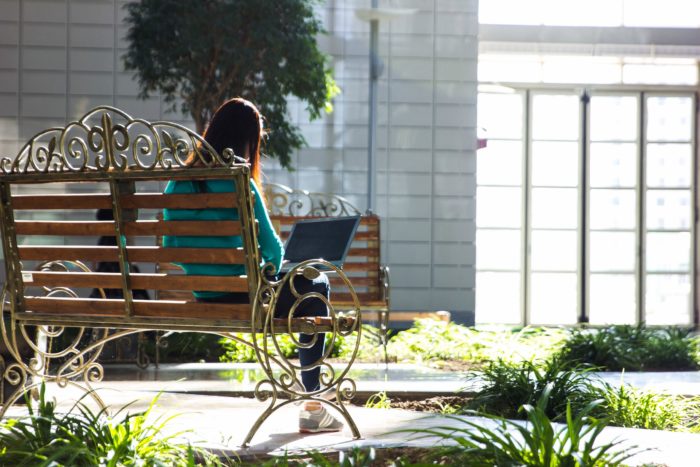In the year 2020, Nazarbayev University, one of Kazakhstan’s leading universities, celebrated its 10th year anniversary with an international accreditation certificate that they received after the global lockdown forced them to go virtual.

Photo credit: NU Image VK group.
Being an alumna of the university myself, I looked into how the pandemic changed the teaching methods and quality of education in my alma mater.
Many educational institutions had to complete the academic year by first getting a hand on all sorts of new communication technologies. According to students at Nazarbayev University, the university professors handled it well and adapted quickly to the new setting.
“I think NU has adapted well to online education. The NU curriculum and the way courses are taught in our university is very conducive to distance learning. When we have our assignment deadlines we submit them online and we’ve been working with Moodle (learning platform) for a long long time,” said Kanat Koiguldinov, who is doing a Masters degree in Eurasian Studies.
“Probably the NU professors were better prepared for this because we don’t have oldschool Soviet professors who prefer to avoid new-fangled technologies,” said a junior year Computer Science student, who prefered not to mention his name.
Distance learning also has its own perks in the form of recorded lectures, which students can watch on their own time. This also leads to more flexible deadlines, easier access to professors’ office hours, among others benefits. The students agree that the overall education quality did not suffer.
This, however, was not the case for many other Kazakhs universities. Unlike NU, which is a new university, other Kazakh institutions are not used to working with learning platforms such as Moodle and are having troubles with students submitting their work.
“My friends from other universities had a really hard time submitting their assignments and passing their exams – previously they could only submit hard copies,” Koiguldinov said. “They also mentioned that other universities have a huge increase in their workload. Now, students have to do a lot of self-study, which was not the case before. At NU we are used to self-study, so it was not a big deal to make the transition to online education.”
Both students and the professor generally agree that distance learning cannot be a substitute for live classes. They refer to the uncomfortable atmosphere at home such as loud children, communal houses with noisy neighbours, lack of personal space, specific technologies or slow to no internet in rural areas as problems.
“We have a lot of people who live with their families and try to focus on studying. It is more difficult and different,” Duisenova said. “In our university, we had the perfect conditions to study. Some families are not lucky enough to have proper computers or good internet.”
The isolation also swept away what Nazarbayev University has always been proud of – its enriching student life. The university had hundreds of student-run clubs where one could always find like-minded people. The students would organize big stage performances for student clubs such as the university orchestra, the choir or the K-Pop dance troupe.
Duisenova was concerned that the lack of socialization would challenge the students’ mental health.
“At the university we had our friends. We studied together, which was more productive. We still can call each other. But it is not how it worked. The learning is stressful. At university we dealt with it in a university club. Now as we are isolated, it is really difficult.”
Byron Crape, Public Health Director and Assistant Professor at NU School of Medicine, had a long experience of distance learning before. Не believes that distance learning cannot fully substitute a traditional classroom education.
“I think [distance learning is] only for those people who can’t come. I think it is always a better experience to be able to be in the location. But sometimes students can’t come as they have obligations in other parts of Kazakhstan or the world. We have a lot of international students as well. If they can’t make it, [we should] also give them the opportunity to receive good education from Nazarbayev University,” he said.
Anyway, one thing is clear: after the pandemic, higher education in Kazakhstan will never be the same.

